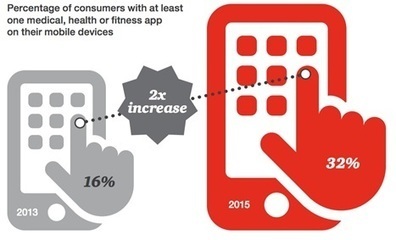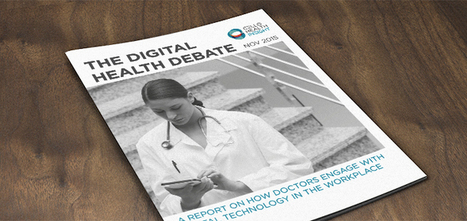The dramatic speed of adoption of smartphones is making the fastest-growing marketing channel mobile; smart companies understand they need to be as mobile as their target audiences.
With mobiles apps, utility is king. Bearing in mind that only about 16% of people would try an app more than once, and up to 90% of downloaded apps are used only once then deleted, according to a study by Compuware, identifying users’ real requirements is key to the success of any mobile app.
Pharma can act strategically by creating apps that are centered on patients’ daily needs and integrating them into the broader health ecosystem.
To balance engagement and compliance, many pharma companies have launched non-promotional heath apps focusing on disease awareness and management.
This increasing adoption of mobile health apps presents a great opportunity for the pharma industry to truly empower patients and healthcare professionals, by providing apps that improve the ways they understand and manage disease.
For this shift to happen, new capabilities must be developed to unleash the potential of digital innovation in the healthcare industry.
Mohanad Fors, global director of Digital Marketing and Innovation, Novartis Ophthalmology Franchise, believes pharma is taking “powerful and serious strides” in digital innovation, especially mobile health apps. He sees two main areas where the industry can improve to achieve more success:
“In most cases, app development or production is done on a tactical level without an overarching strategic plan, which sometimes results in short-lived apps that do not achieve the desired success. Launching digital awareness and training programmes can help us build digital capabilities and embed the digital mind-set in the business.
“The second one, which I believe is more critical, is the need for dedicated teams working on the whole cycle of health apps creation, from idea to maintenance and follow up. If you look at any successful app on the market you will find a complete team working day and night on it to ensure user satisfaction and interest. This is slowly happening now as digital becomes a top priority on industry executives’ agendas.”
Via Pharma Guy



 Your new post is loading...
Your new post is loading...












Just one example of a pharma mobile app failure: “Another Useless #Pharma mHealth App. At Least J&J Didn't Waste Effort Re-Inventing It!”; http://sco.lt/8ZS5I1
Also read “The Sorry State of Pharma Mobile Health Apps & What To Do About It”; http://sco.lt/4n05wH